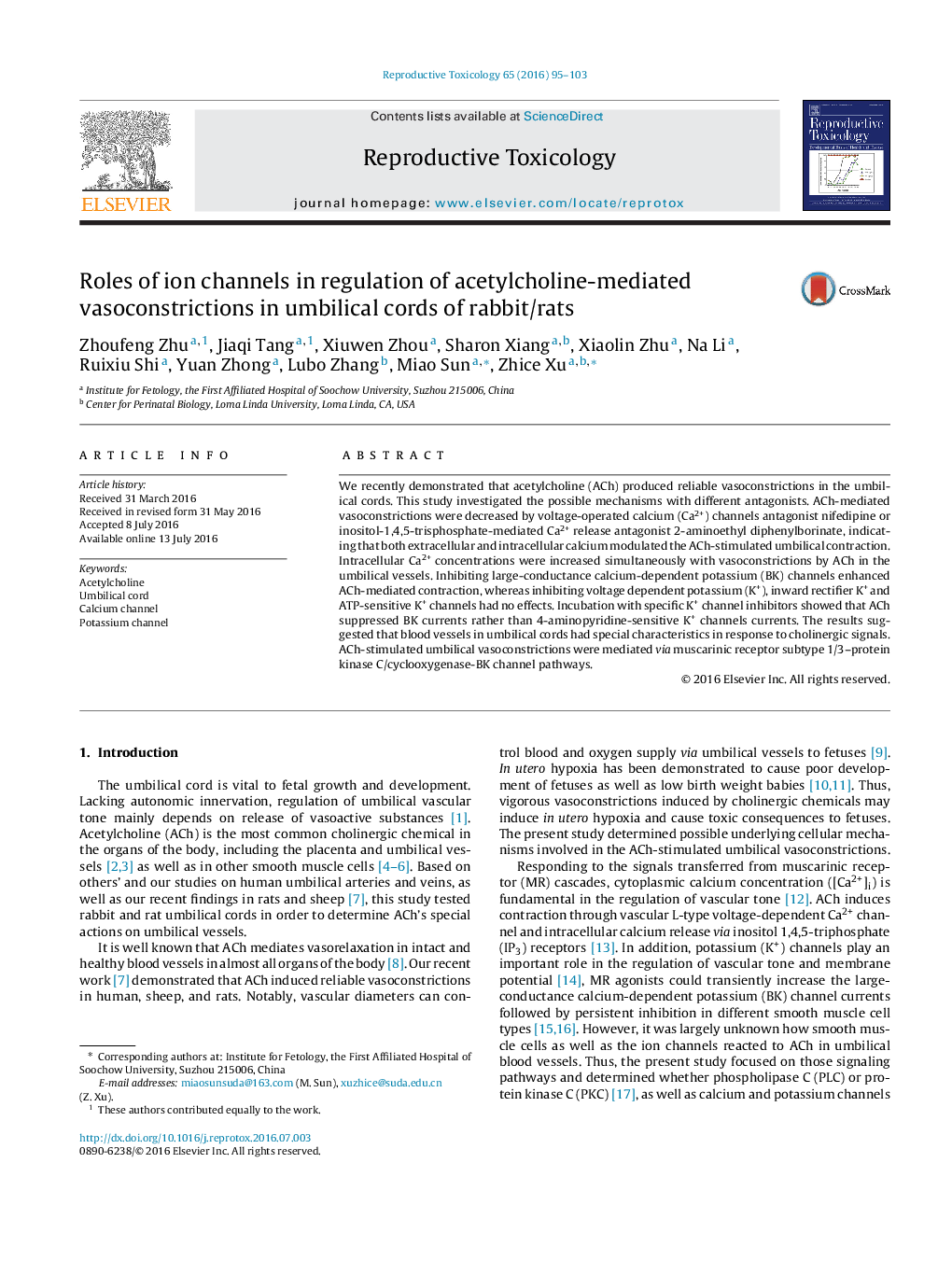| Article ID | Journal | Published Year | Pages | File Type |
|---|---|---|---|---|
| 5857924 | Reproductive Toxicology | 2016 | 9 Pages |
Abstract
We recently demonstrated that acetylcholine (ACh) produced reliable vasoconstrictions in the umbilical cords. This study investigated the possible mechanisms with different antagonists. ACh-mediated vasoconstrictions were decreased by voltage-operated calcium (Ca2+) channels antagonist nifedipine or inositol-1,4,5-trisphosphate-mediated Ca2+ release antagonist 2-aminoethyl diphenylborinate, indicating that both extracellular and intracellular calcium modulated the ACh-stimulated umbilical contraction. Intracellular Ca2+ concentrations were increased simultaneously with vasoconstrictions by ACh in the umbilical vessels. Inhibiting large-conductance calcium-dependent potassium (BK) channels enhanced ACh-mediated contraction, whereas inhibiting voltage dependent potassium (K+), inward rectifier K+ and ATP-sensitive K+ channels had no effects. Incubation with specific K+ channel inhibitors showed that ACh suppressed BK currents rather than 4-aminopyridine-sensitive K+ channels currents. The results suggested that blood vessels in umbilical cords had special characteristics in response to cholinergic signals. ACh-stimulated umbilical vasoconstrictions were mediated via muscarinic receptor subtype 1/3-protein kinase C/cyclooxygenase-BK channel pathways.
Related Topics
Life Sciences
Environmental Science
Health, Toxicology and Mutagenesis
Authors
Zhoufeng Zhu, Jiaqi Tang, Xiuwen Zhou, Sharon Xiang, Xiaolin Zhu, Na Li, Ruixiu Shi, Yuan Zhong, Lubo Zhang, Miao Sun, Zhice Xu,
